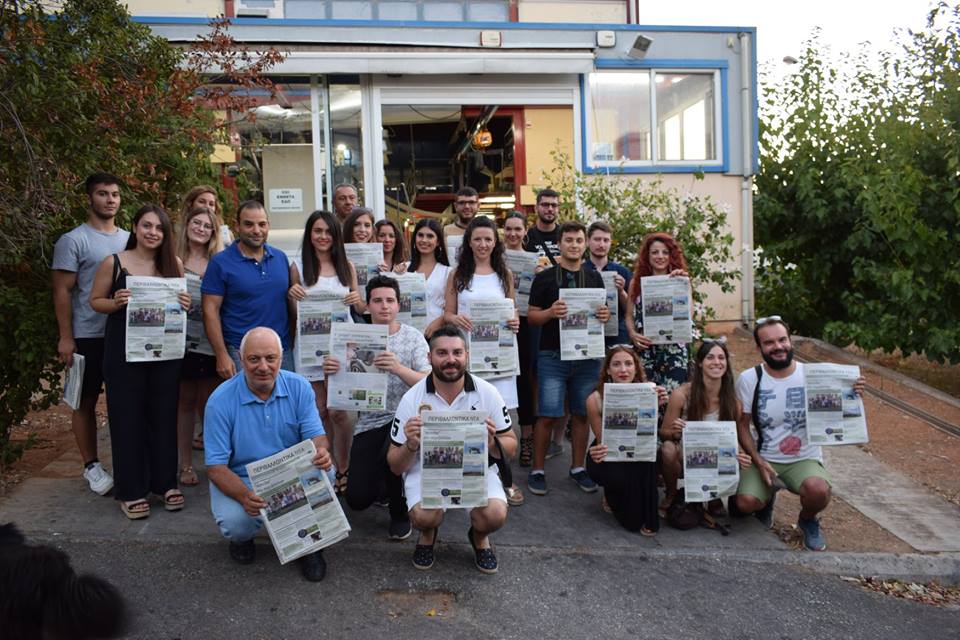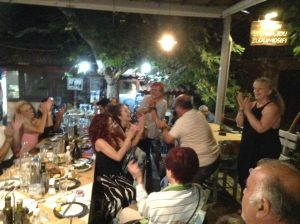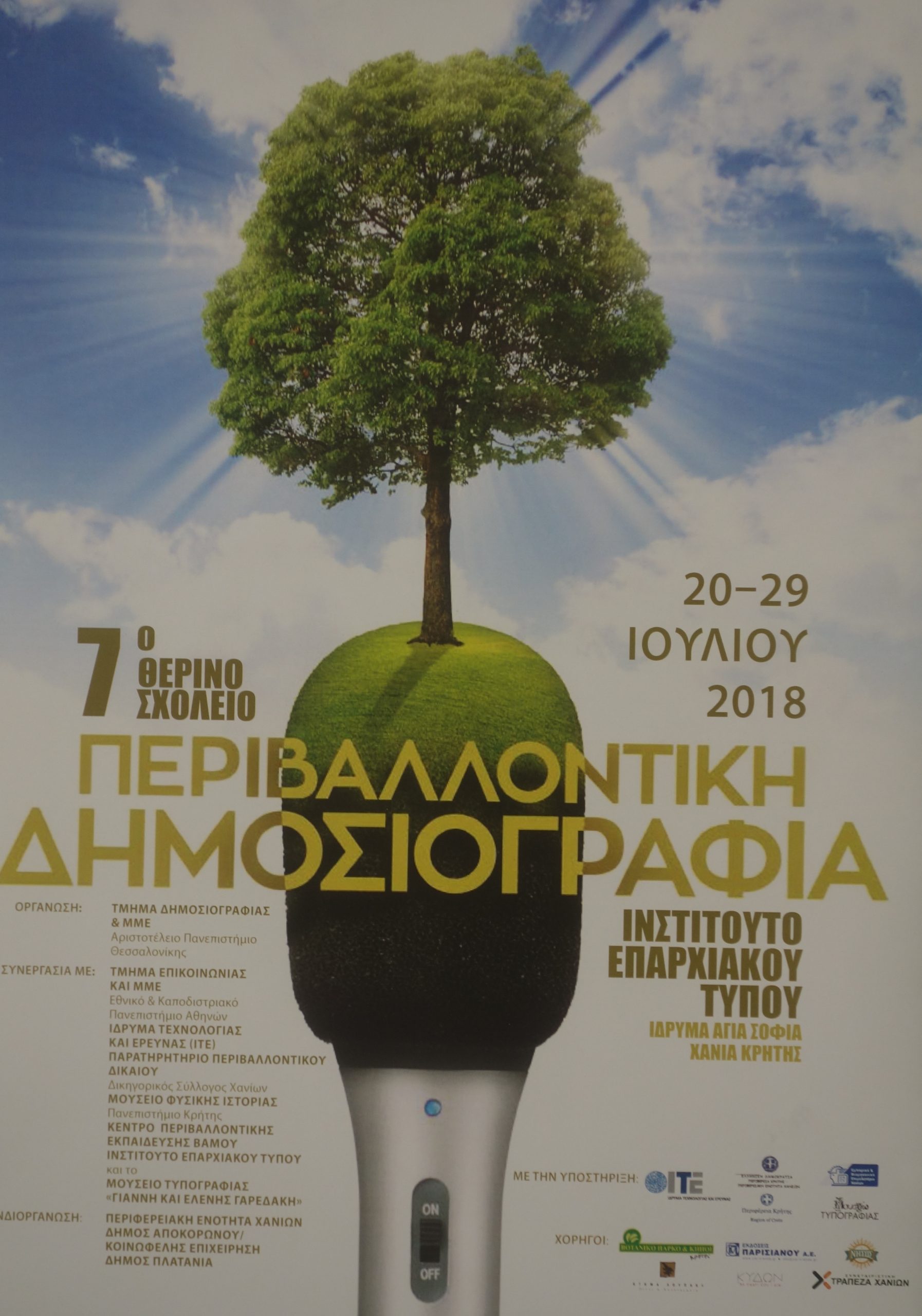
The 7th Summer School for Environmental Journalism on Crete, Greece (20-29 July 2018) put the environmental movement into place as a global focus for science, journalism, and society. Learning and an academic exchange on a dream island. WFSJ board member, Wolfgang Chr. Goede, was invited to the Summer School as a lecturer. He reports on his experience.
PLANET OF FEAR
Quite challenging and controversial turned out the Summer School opening at the Regional Press Institute on Crete. Professor George Panigirakis, Department of Public Communication of the Cyprus University of Technology, painted a grim picture of reality. Not only Greece is stuck in a crisis. The entire world resembles a “planet of fear”, he found, with a lack of ethics and mounting environmental issues. Economy and marketing have not found yet adequate responses. He compared this state with a black hole, which was echoed by statements of other panellists.
BRAIN GAIN
For example by journalists who criticized consumers and citizens for being too self-complacent, bureaucracies too clumsy, the media for having lost its gatekeeper function and a severe erosion of objectivity. Professor Tavernarakis, director of the prestigious Foundation for Research and Technology Hellas (FORTH), sponsor of the summer school, detected a severe brain drain in Greece, but he reversed it into a brain gain. Through more engaged sciences which make the environment a prime target. Food security in climate change times is on top of the FORTH research agenda.
SAVE THE BLACK SEA
And, of course, much more collaboration is needed between scientists and science journalists. Both can learn from each other, for example when the Greek science journalist and Summer School co-organizer Vasiliki Michopoulou presents in the FORTH auditorium how researchers can improve their communication skills with the public and the media. Or when Svitlana Pereplotchykova from Kiev University delivers a pitch on the environmental hazards of the Black Sea and that the whole region needs to band together to enforce protective measures.
NEW TANDEMS
 The author contributed to this international scenario and emphasized in his presentations two musts. That as science journalists we need to encourage, moderate, develop new interactive and participative formats of information exchange between research and the public. And that there is no gap between both, that especially in environmental protection professional experts and lay experts can form powerful tandems of efficient collaboration. Newly developed manuals, which also may be moderated by science journalists, facilitate this process.
The author contributed to this international scenario and emphasized in his presentations two musts. That as science journalists we need to encourage, moderate, develop new interactive and participative formats of information exchange between research and the public. And that there is no gap between both, that especially in environmental protection professional experts and lay experts can form powerful tandems of efficient collaboration. Newly developed manuals, which also may be moderated by science journalists, facilitate this process.
BUSH FIRES
Like many other countries, Greece still has a long way to go in environmental protection. As workshops with the students about environmental research and writing show, the country does not have a regular garbage disposal, much of the naughty stuff is just buried in the ground. And how important joint and global action on climate change is, can be watched in the neighbourhood. A few kilometres away from the summer school venue, a bushfire ravages and all of a sudden the power lines fall dead. No computers, no more presentations, no air conditioning. We’re in the middle of a session and the lecturers of the Vienna University become a bit uptight and have to improvise. The site does not need to be evacuated, fortunately, but the next day the flags are at half-mast. Around Athens, almost a hundred people died in bushfires.
SUMMER SCHOOL GOES INTERNATIONAL
Very sad, but other than this: Crete is an ideal place to have a summer school. With lots of museums around, for example the beautiful Museum of Typography in Chania, the FORTH institute with one hundred researchers in Heraklion, Mediterranean beaches and mountains with peaks up to 2,500 meters high, last but not least beautiful taverns around for lunches and dinners with excellent Greek food and when the night goes late with music and dance. Nine days of unique experience, so now comes the good news: Next year the organizer Antonis Skamnakis6 wants to open it up the event, make it international and in English. What a great learning and networking opportunity!
Article by Wolfgang Goede
Munich, 2 August 2018
Resources
- 7th Summer School Reports & pictures
- Regional Presse Institute (formerly Mediterranean Press Institute)
- Foundation for Research and Technology – Hells (Forth Institute)
- How to make your audiences neurons rock? Link.
- Promoting Societal Engagement in Research and Innovation (PROSO). A manual for Europe’s Universities how to engage citizens in science.
- Antonis Skamnakis, Coordinator Summer in Environmental Journalism of the Regional Press Institute Chania, Crete, Professor School of Journalism and Mass Communication, Aristotle University of Thessaloniki. Article here.
